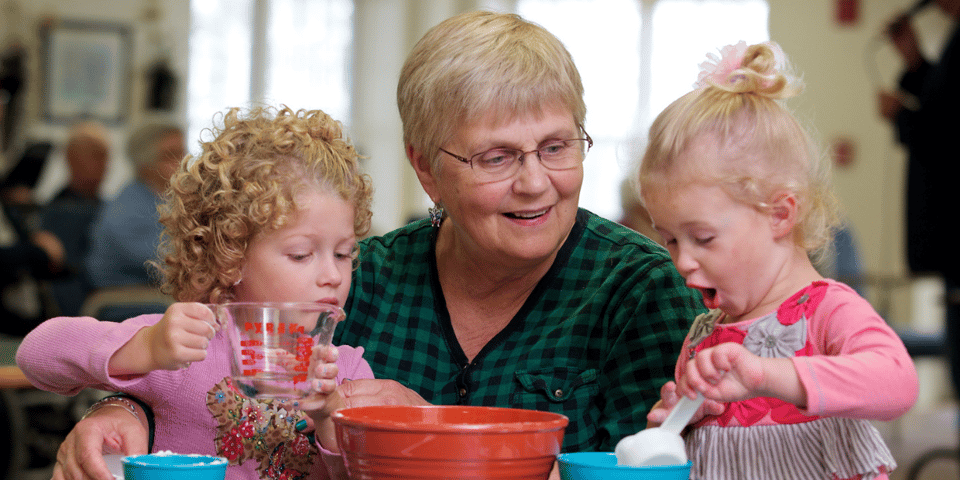When you think about health and wellness as you age, do you think of keeping up with doctor appointments, taking daily walks, and paying attention to your diet? Although these habits are certainly a part of the healthy aging puzzle, there are other components that some people overlook.
For example, did you know that paying attention to your friendships and your social calendar is just as important as taking your vitamins or signing up for yoga classes? It’s true! Research has shown a connection between social health and overall well-being.
Want to improve your social health and cultivate relationships with others? Here’s what you need to know about how residents of active senior living communities can get a jump start on their socialization.
Consider the Data
Scientists and health professionals have only recently started to focus on social health and how meaningful relationships can positively impact health. However, this research is already proving how vital connections are, no matter your age.
The Centers for Disease Control and Prevention reports that loneliness and social isolation are public health concerns with serious health consequences. More than one-third of adults over the age of 45 report feeling lonely, placing them at greater risk of rapid cognitive decline, heart disease, obesity, anxiety, and even premature death.
It’s also important to note that isolation and loneliness do not necessarily go hand in hand. The National Institute on Aging tells us that about 28% of older adults live alone, but not all of them are socially isolated or lonely. Similarly, adults who live surrounded by family members can still feel quite lonely.
The good news? Just a few meaningful relationships and daily connections with people who matter can prevent these negative health consequences. Studies have shown that friendships are just as important — if not more important than — than familial relationships. Strong friendships can decrease stress, stimulate the mind, and foster feelings of empowerment and purpose.
Connect Without the Stress
Does the idea of making new friends give you a bit of anxiety or sweaty palms? That is common! Most adults haven’t necessarily had to make new friendships, and doing so is not a skill that comes easily to everyone.
As we age, it’s common for our social circles to get a bit smaller, as adult friendships are typically rooted in careers and children’s activities. As adult children leave the nest and retirement approaches, it can be difficult to find places to easily make friends.
And making friends is not just good for you — it also will benefit the people with whom you form connections. Friendships are valuable to all people lucky enough to be a part of them, so remember that you have a lot to offer.
Make Friends and Fill Your Social Calendar
If meeting new people makes you feel uncomfortable or unconfident, here are a few tips you can use to make the process easier:
1. Share an experience.
It can be easier to strike up a conversation when you share an experience with someone, such as an exercise class or art workshop. Sign up for local events at your library or through your local parks department. It won’t be long before you are chatting with a new acquaintance.
2. Share a coffee.
Similar to sharing experiences to make friends, sharing a meal or a coffee can also be a great way to get to know someone better. Try to keep up a conversation after an event by asking if your fellow attendee would like to grab a cup of coffee at a local diner. This is a great opportunity to get to know someone better before you commit to a more lengthy meal.
3. Look for like-minded people.
Diversifying your friend group is certainly beneficial, but sometimes it’s easier to make a friend if you share a similar interest. Search online for meetups centered around your passions, such as a volunteer group, hiking club, or crafting meetup.
4. Host a regular event.
Instead of looking for a group activity, host one! You can cultivate existing friendships and create new ones by hosting a regular meetup with a group of friends. For example, provide coffee and pastries at your home every Saturday morning before you all head off to the farmers market or plan book club meetings over dinner at a new local restaurant each month. Remember, an event doesn’t have to be fancy or take a long time to prepare to be meaningful.
5. Reconnect with friends from your past.
It can be fun to reconnect with people from your past, such as an old high school friend or former coworker. Take the initiative to check in by finding them on social media or through mutual acquaintances. Get together to reminisce about your times together and to catch up on where life has taken you.
Meet New Neighbors
For many, active senior living communities are the ideal solution to the friendship and socialization challenges that naturally happen as we age. These communities are designed to make connecting with neighbors easier, whether it’s over a meal, during an event, or on a walking trail.
At WesleyLife, our Communities for Healthy Living were created to be bustling neighborhoods full of activity, connections, and new friendships. Learn more about WesleyLife communities by finding one near you.





